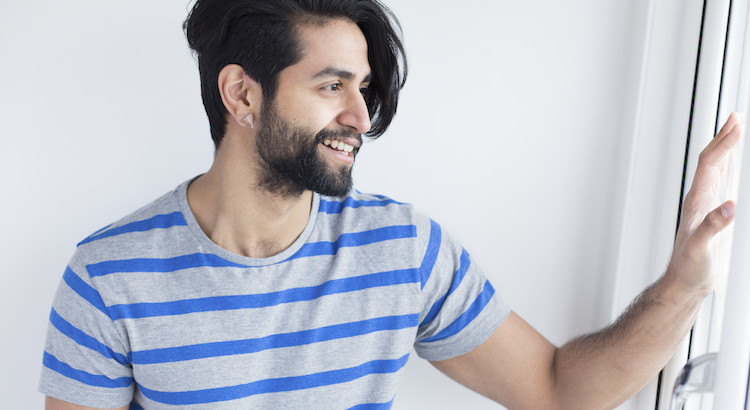College Students Have Wrong Idea About Caffeinated Alcoholic Drinks

New findings from a team of American researchers indicate that college students dangerously combine caffeine with alcohol because they believe this practice will help them avoid the negative consequences of alcohol consumption.
Significant numbers of people in the U.S. purposefully combine alcohol consumption with the intake of some sort of caffeinated beverage. Unfortunately, this practice can substantially elevate the harm associated with drinking. In a study published in March 2015 in the journal Addictive Behaviors, researchers from two U.S. institutions explored the reasons college students combine alcohol and caffeine. These researchers concluded that students are largely motivated by a mistaken belief that consumption of caffeinated alcoholic beverages actually reduces the level of harm associated with drinking.
Alcohol and Caffeine
Caffeine is a relatively mild stimulant that can nevertheless meaningfully increase the rate of baseline nerve cell activity inside the central nervous system (brain and spinal cord). Most people consume caffeine in the form of coffee, tea or caffeinated sodas. However, increasing numbers of people consume products called energy drinks, which contain as much as 500 percent to 600 percent more caffeine per serving than traditional sodas. Examples of these drinks include 5-Hour Energy, Rockstar, Red Bull and Monster.
When consumed in any substantial amount, energy drinks can mask some of the telltale signs of alcohol intoxication (primarily, alcohol’s slowing effect on central nervous system communication). However, energy drink consumption does not change the speed at which the body eliminates alcohol from the bloodstream. Effectively, this means that a person who consumes a combination of alcohol and energy drinks can significantly underestimate his or her level of intoxication. In turn, underestimation of intoxication can lead to an excessive and potentially highly dangerous level of alcohol intake. For this reason, the U.S. Food and Drug Administration has banned a range of products that contain premixed amounts of alcohol and caffeine. However, young people in particular are prone to mixing their own versions of caffeinated alcoholic beverages with alcohol and energy drinks.
Alcohol Expectancies
Everyone who consumes alcohol has a conscious or unconscious idea of the positive and/or negative outcomes associated with drinking. Psychologists and researchers commonly refer to these underlying alcohol-related beliefs as alcohol expectancies. Some expectancies are “positive”; this means that a drinker believes he or she will benefit from alcohol use in some way. Conversely, negative expectancies stem from a belief that alcohol use will cause harm. Generally speaking, a person with positive alcohol expectancies has a higher chance of falling into a dangerous pattern of drinking than a person with negative alcohol expectancies.
Why Do College Students Combine Alcohol and Caffeine?
In the study published in Addictive Behaviors, researchers from Old Dominion University and the Virginia Consortium Program in Clinical Psychology used a project involving 322 young adults to help determine why college students combine alcohol and caffeine during drinking sessions. All of the study participants were alcohol-consuming college students. The researchers specifically probed two alcohol expectancies previously linked to the combined use of alcohol and caffeine: the desire to enhance the experience of alcohol intoxication and the desire to escape the negative outcomes associated with drinking. In addition, they looked more broadly at the strategies that college students typically adopt to protect themselves from alcohol-related harm.
After analyzing information submitted by the study participants, the researchers concluded that college students commonly combine alcohol with caffeine because they believe this practice will help them escape the negative outcomes of drinking. Crucially, the researchers also concluded that this belief reduces the chances that students will take other measures to protect themselves from the potential harms of alcohol consumption. Just as crucially, they concluded that this chain of thought and action in college students typically leads to an increased level of exposure to alcohol-related harm.
The study’s authors concluded that college students who frequently combine alcohol with caffeine have a more entrenched belief in the benefits provided by this practice. Their findings indicate that public health officials and school administrators may be able to meaningfully reduce the level of alcohol-related harm on college campuses by emphasizing the dangers of mistaken beliefs about the “positive” impact of consuming energy drinks or other sources of caffeine during drinking sessions.
Article Categories
- 12 Steps
- Addiction in the Family
- Addiction Infographics
- Alcohol Addiction
- Articles
- Drug Addictions
- Drug Rehab Center News
- Helpful Articles
- Holidays & Substance Abuse
- Mental Health & Addiction
- Real Life Addiction Stories
- Recovery Testimonials
- Relapse Prevention
- Substance Abuse Prevention
